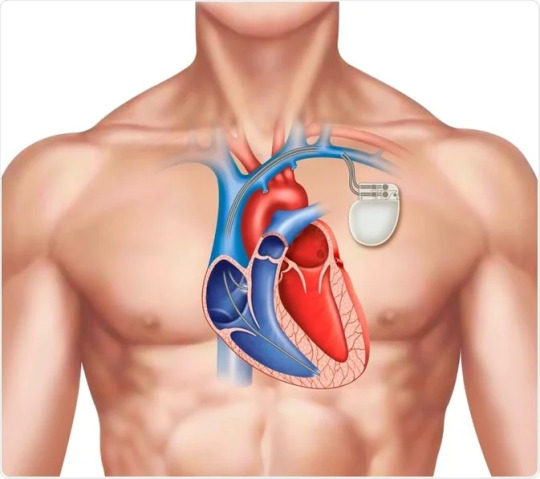#PacemakerImplantInPune
Explore tagged Tumblr posts
Text
Diabetes and Heart Disease: Understanding HbA1C and Well-Controlled Diabetes
Diabetes and heart disease are closely connected, with diabetes significantly increasing the risk of cardiovascular complications. Understanding the role of HbA1C and how it relates to well-controlled diabetes is essential for managing this risk and maintaining overall health.

What is HbA1C?
HbA1C, also known as glycated hemoglobin, is a blood test that measures your average blood sugar levels over the past two to three months. It provides a clear picture of long-term glucose control and helps doctors assess the risk of diabetes-related complications, including heart disease. For most individuals with diabetes, an HbA1C level below 7% is considered well-controlled. However, specific targets may vary based on individual health conditions and recommendations from healthcare professionals.
The Link Between Diabetes and Heart Disease
People with diabetes are two to four times more likely to develop heart disease than those without the condition. High blood sugar levels can damage blood vessels and nerves that control the heart, leading to complications like coronary artery disease, heart failure, and stroke. Poorly controlled diabetes further amplifies these risks, making it crucial to manage blood sugar levels effectively.
What is Well-Controlled Diabetes?
Well-controlled diabetes means maintaining blood sugar levels within a target range set by your healthcare provider. This involves a combination of healthy eating, regular exercise, medication adherence, and routine monitoring of blood glucose levels. An HbA1C test is a critical part of this process, as it indicates how effectively your diabetes management plan is working.
Achieving well-controlled diabetes not only reduces the risk of complications but also improves overall quality of life. It can lower the likelihood of heart disease, kidney damage, and nerve problems, helping you lead a healthier life.
Tips for Managing Diabetes and Protecting Heart Health
Monitor HbA1C Levels: Regularly check your HbA1C levels and discuss results with your doctor. Adjust your treatment plan as needed to stay within the target range.
Adopt a Heart-Healthy Diet: Focus on foods rich in fiber, lean proteins, and healthy fats. Limit sugar, salt, and processed foods to reduce the risk of heart disease.
Stay Active: Aim for at least 30 minutes of moderate exercise most days of the week. Physical activity helps control blood sugar levels and strengthens your heart.
Take Medications as Prescribed: Follow your doctor’s advice on diabetes and heart medications. Missing doses can lead to uncontrolled blood sugar and increased heart risks.
Manage Stress: High-stress levels can affect blood sugar and heart health. Practice relaxation techniques like meditation or yoga.
Regular Check-ups: Visit the best heart specialist in Pune or consult experts at the best cardiologist hospital in Pune to monitor your heart and diabetes health.
Why Choose Expert Care?
Managing diabetes and heart disease requires specialized care. Consulting the best cardiologist in Pune ensures you receive personalized treatment plans tailored to your needs. Comprehensive care from top specialists can help you achieve well-controlled diabetes and reduce the risk of heart complications.
At Hridaymitra Cardiac Clinic, we provide expert guidance on managing diabetes-related heart risks. Our team is dedicated to ensuring your heart and overall health are in the best hands. Don’t wait to take control of your health—schedule a consultation today.
#BestCardiologistinPune#CardiologistinPune#InterventionalCardiologistinPune#CardiacClinicinPune#AngiographyInPune#CoronaryAngioplastyTreatmentInPune#PacemakerImplantinPune#angiographyspecialistinpune#AngioplastyTreatmentInPune#heartclinicInPune#heartspecialistpune#bestheartspecialistinpune#bestcardiologisthospitalinpune#topcardiologistinpune#bestcardiologistinpunedeenanathmangeshkarhospital#bestheartdoctorinpune
0 notes
Text
How to Pick the Best Cardiologist for Your Heart Health
Choosing the right cardiologist is essential for maintaining optimal heart health, especially if you’re at risk of heart disease or have existing cardiovascular conditions. With the rising incidence of heart-related issues, such as high blood pressure, coronary artery disease, and arrhythmias, finding a reliable cardiologist can ensure you receive timely and effective treatment. For those looking for the best cardiologist in Pune or seeking specialized procedures like angiography in Pune or coronary angioplasty treatment in Pune, here’s a comprehensive guide to help you make the right choice.

1. Check Their Credentials and Specializations
A cardiologist’s credentials reveal a lot about their training and expertise. It’s essential to confirm that your chosen cardiologist is board-certified, which reflects a high standard of medical training and knowledge in cardiovascular medicine. If you require specific procedures like angiography or coronary angioplasty, make sure the cardiologist has the necessary certifications and hands-on experience in performing these treatments.
Cardiologists often specialize in subfields, such as interventional cardiology, which deals with angioplasty and stent placement, or electrophysiology, focusing on heart rhythm issues. Choosing a cardiologist who specializes in the area you need can lead to better treatment outcomes.
2. Experience Matters
When it comes to heart health, experience is a significant factor. Cardiologists who have been practicing for many years or who handle numerous cases of a particular type are generally more adept at diagnosing and treating complex issues. For instance, if you’re seeking coronary angioplasty treatment in Pune, it’s beneficial to choose a cardiologist who has performed many successful angioplasties. Look for reviews or patient testimonials that speak to their expertise, as well as any advanced techniques or technologies they may use.
3. Assess the Hospital’s Reputation
The quality of the hospital where the cardiologist practices is another crucial consideration. Leading hospitals in Pune offer state-of-the-art facilities, the latest technology, and specialized teams for cardiovascular care. If you’re considering angiography in Pune or another procedure, ensure that the hospital is well-equipped with the necessary medical technology for accurate diagnosis and effective treatment. The hospital should also have robust critical care facilities and a dedicated cardiac care unit.
4. Consider Patient-Centric Care and Communication
Heart-related health issues can often be anxiety-inducing. Hence, a cardiologist who communicates effectively and answers all your questions with patience is essential. Look for a cardiologist who listens carefully to your symptoms, explains diagnosis and treatment options clearly, and doesn’t rush through appointments. Compassion and empathy are valuable qualities that make a significant difference in a patient’s experience.
Additionally, if your cardiologist recommends preventive lifestyle changes, such as diet and exercise modifications, they should be able to guide you comprehensively or refer you to the appropriate specialists, like dieticians or physiotherapists, within their network.
5. Read Reviews and Get Recommendations
Online reviews and recommendations from friends, family, or your primary care physician can offer useful insights into a cardiologist’s reputation and patient satisfaction levels. Look up online reviews to see how other patients rate their experiences, particularly for procedures like angiography or coronary angioplasty treatment in Pune. Consider the feedback related to the cardiologist’s expertise, waiting times, approachability, and hospital facilities.
6. Insurance and Affordability
Cardiac care can be expensive, so it’s essential to consider the cost of consultations, tests, and procedures. Ensure that the cardiologist accepts your health insurance plan and that the hospital they practice in is part of your network. This will reduce your out-of-pocket expenses significantly. Moreover, some procedures, such as coronary angioplasty, can incur high costs, so understanding your insurance coverage will help you manage expenses better.
Conclusion
Selecting the best cardiologist in Pune involves balancing various factors, from credentials and experience to hospital facilities and patient satisfaction. For heart-related procedures like angiography and coronary angioplasty treatment in Pune, a skilled, communicative, and compassionate cardiologist can make all the difference in ensuring successful outcomes. Prioritize your health by taking the time to research and select a cardiologist who will provide personalized, effective, and timely care tailored to your specific needs.
#BestCardiologistinPune#CardiologistinPune#InterventionalCardiologistinPune#CardiacClinicinPune#AngiographyInPune#CoronaryAngioplastyTreatmentInPune#PacemakerImplantInPune#angiographyspecialistinpune#AngioplastyTreatmentInPune#heartclinicInPune
0 notes
Text
Diet tips for pacemaker patients: Foods to eat and avoid.
A pacemaker is a small device implanted to help regulate abnormal heart rhythms. After receiving a pacemaker implant in Pune, it’s essential to maintain a heart-healthy diet to support your cardiovascular system and ensure the long-term success of the procedure whether you've had a Pacemaker Implantor are under the care of the Best Cardiologist in Pune, making the right food choices can significantly impact your health.

Foods to Eat
Leafy Green Vegetables Leafy greens contain vital nutrients like vitamin K, important for blood clotting; consumed in moderation when on blood thinners to prevent interaction.
Whole Grains Adding whole grains such as oats, brown rice, and whole wheat to your diet can cut cholesterol and boost heart health as they are rich in fiber, aiding in decreasing LDL cholesterol and stabilizing blood sugar.
Lean Proteins Protein is essential for tissue repair and maintaining muscle mass, especially after surgery or a procedure like Angioplasty Treatment in Pune. Opt for lean proteins such as chicken, turkey, fish, and plant-based options like beans and lentils. Fish rich in omega-3 fatty acids, like salmon and mackerel, are particularly heart-friendly, as omega-3s help reduce inflammation and lower the risk of heart disease.
Fruits Rich in Antioxidants Antioxidant-rich fruits like berries, oranges, and apples neutralize free radicals, reducing oxidative stress and benefiting pacemaker patients' cardiovascular health. Blueberries and strawberries with flavonoids lower heart disease risk.
Nuts and Seeds Walnuts, almonds, flaxseeds, and chia seeds provide heart-healthy fats that can improve cholesterol levels. These nuts and seeds are excellent sources of magnesium, which plays a key role in maintaining a steady heart rhythm.
Foods to Avoid
High-Sodium Foods One of the primary dietary considerations for pacemaker patients is to avoid high-sodium foods. Excessive salt intake can lead to hypertension (high blood pressure), which strains the heart. Processed foods like canned soups, deli meats, and chips often contain hidden sodium. For heart health, aim to keep sodium intake below 1,500 mg per day.
Sugary Foods and Beverages Sugary drinks like soda and sweetened fruit juices can lead to weight gain, insulin resistance, and increased cholesterol levels. Pacemaker patients should minimize their consumption of refined sugars and opt for naturally sweet foods like fruits instead.
Saturated and Trans-Fats Saturated fats, found in red meat, butter, and full-fat dairy products, can increase cholesterol levels and contribute to plaque buildup in the arteries. Trans fats, often present in fried foods and packaged snacks, are particularly harmful to heart health. These fats can increase the risk of atherosclerosis, leading to complications for pacemaker patients.
Excessive Alcohol Alcohol, especially in excessive amounts, can interfere with the electrical activity of the heart and impact the functionality of a pacemaker. It can also lead to weight gain, high blood pressure, and increased cholesterol levels. If you drink alcohol, do so in moderation—no more than one drink per day for women and two for men.
Caffeine While caffeine in moderate amounts may be safe for some people, it can cause arrhythmias (irregular heartbeats) in others. Pacemaker patients should monitor their caffeine intake and avoid consuming excessive amounts of coffee, tea, or energy drinks, which can overstimulate the heart.
Conclusion
A well-balanced, heart-healthy diet is essential for pacemaker patients to ensure the longevity of their device and overall cardiovascular well-being. By choosing nutrient-rich foods like leafy greens, whole grains, and lean proteins while avoiding high-sodium, sugary, and fatty foods, you can promote optimal heart health.
Whether you’ve had a Pacemaker Implant in Pune or are undergoing Angioplasty Treatment in Pune, consulting with the Best Cardiologist in Pune at a trusted Heart Clinic in Pune can provide personalized dietary advice to suit your specific needs.
A healthy diet, coupled with regular check-ups, is key to a long and healthy life with a pacemaker
#BestCardiologistinPune#CardiologistinPune#InterventionalCardiologistinPune#CardiacClinicinPune#AngiographyInPune#CoronaryAngioplastyTreatmentInPune#PacemakerImplantInPune#angiographyspecialistinpune#AngioplastyTreatmentInPune#heartclinicInPune
0 notes